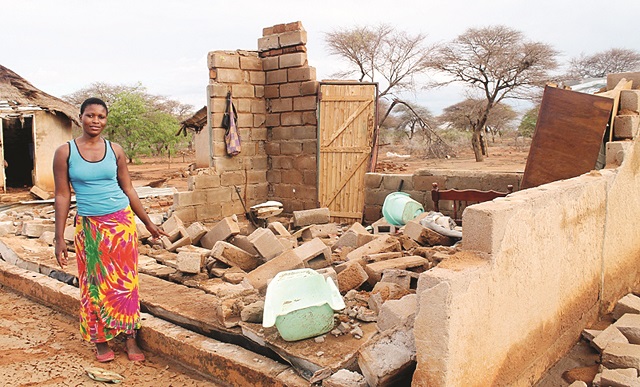Majority of rape cases not reported as numbers soar
Gender, Vaidah Mashangwa
Rape is another category of interpersonal violence.
While rape cases continue to escalate in Zimbabwe, one survey revealed that there are more rape cases that are not reported to the police as compared to cases that are reported.
According to the World Health Organisation, only one third of all rape cases are reported to the police. This also includes cases of attempted rape.
The latest global victim survey results show that in most instances, the victim is known to the neighbours or friends.
In almost 67 percent of the rape cases, the perpetrator and the victim know each other, usually relatives, casual acquaintances or neighbours. In 33 percent of the cases, perpetrators and victims are strangers to each other.
While there is a notion that suggests that victims often seduce the perpetrators, there is no research to support such a notion although some perpetrators make such claims to rationalise their behaviour.
There are a host of reasons why victims of rape hesitate to file reports with the police. First, rape is an emotionally upsetting and deeply humiliating experience for the victim.
Although attitudes are slowly changing, the victim often encounters a strong stigma, even within her or his family including relatives.
The peers and the community all can associate the rape with certain attitudes and perceptions about the victim. The victims at times face embarrassing questioning from the police and prosecutors who will be trying to verify the details of the crimes.
With the establishment of the Victim Friendly Unit though, it is more user friendly now to report any cases of sexual abuse. Above all, at times the public also has unanswered questions about the victim’s previous sexual experiences at times with insulting implications on why the victims failed to resist.
Evidence suggest that the number of officially recorded rape cases has gone up because of increased reporting though the numbers could even escalate if all victims were to report.
Male victims are less likely to report the crime than the female victims because of varied reasons too. First men feel equally embarrassed to report that they were raped by women. In our society too a man is supposed to be strong and be man enough to resist any advances by a woman. It might then be embarrassing to report such an encounter.
The victims at times face embarrassing questioning from the police and prosecutors who will be trying to verify the details of the crimes
Another dimension is whereby women withdraw reported cases of rape and other forms of domestic violence. It is very unfortunate that even where the signs of abuse are visible, a woman still withdraws the case. Generally, the same woman goes back to the same abusive husband or partner and continues to suffer.
Rape prevention programmes in high schools, colleges and universities have attempted to educate students about the dimension of rape including date rape. Many people still react differently to spousal rape even though this is a reality.
Many people still feel that it is still ambiguous in terms of how a wife can be raped by her own husband. The issue of lobola has always been cited as overarching in terms of what happens in a marriage.
Rape still represents an overt act of control that ensures the continued oppression of women and the perpetuation of a male-dominated society. To think that men rape women because of the desire of sexual gratification seems to require further interrogation. One wonders how a man can be satisfied sexually by inflicting pain on an innocent victim.
Young men between 15 and 25 years of age commit most rape crimes though in Zimbabwe quite a sizeable number of elderly and middle-aged men continue to be perpetrators of rape.
Most rape cases are planned rather than spontaneous. While most people believe that rape is committed under the influence of alcohol, the latter does not play any major role in most of the rape cases. Apart from that, most convicted rapists have no prior records for sex offences although some might have previous convictions for other crimes.
One form of rape which has received increased attention and which is also rarely reported is date rape. The victims are usually raped after a date. During the course of the evening, the male expects that the evening will include sexual relations, an expectation which most females do not share. Such a rape does not include much force as the victim rarely expects such an encounter. The male partner refuses to accept the female’s refusal partly because he thinks since he has paid for the movie, dinner or hotel he deserves the sexual encounter.
Many date rape cases are rarely reported due to the same reasons cited earlier on especially to save embarrassment. Research highlights that at least 25 percent of high school girls have experienced some kind of sexual abuse and a sizeable number report the rape cases.
It is unfortunate that most women do not regard date rape as a crime. In one survey, only five percent of women indicated that they had been coerced into unwanted sex at any time in the past by some degree of physical force.
A similar number indicated that when they were raped they were under the influence of alcohol or other drugs. Women are encouraged to report cases of rape as this grossly infringes upon their rights and has serious consequences socially, economically and emotionally.
Vaidah Mashangwa Director ICT, e-Learning, Communication Strategies and Image Building in the Ministry of Primary and Secondary Education. She can be contacted on 0772111592 email [email protected]








Comments